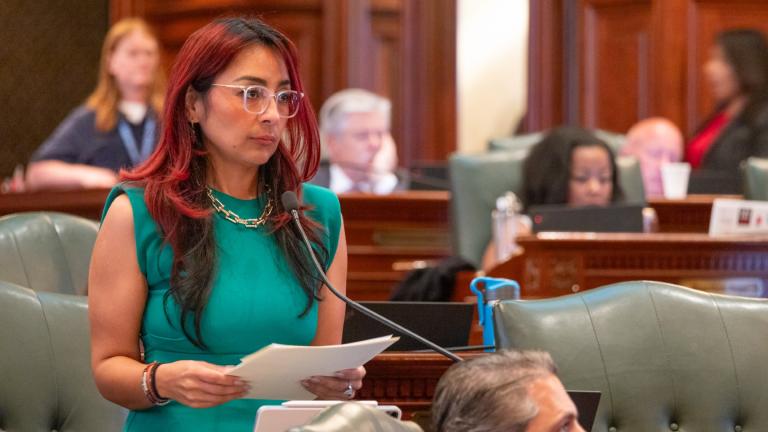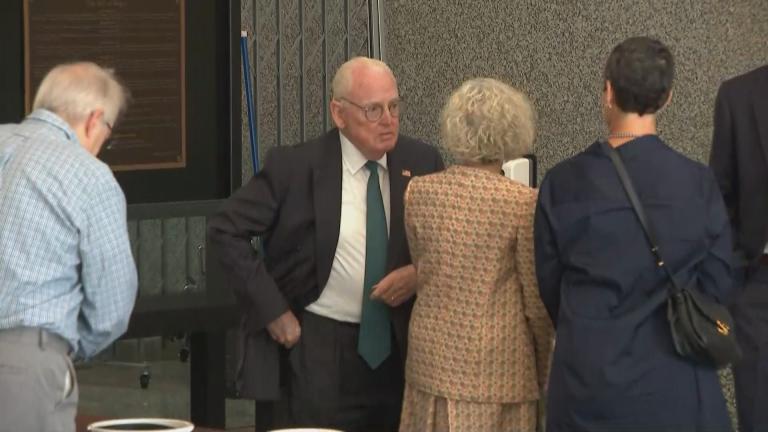Black temp workers were systemically discriminated against. That’s the charge at the heart of a nearly decade-old class action lawsuit against an industrial bakery in Chicago.
Now, the staffing agency and the bakery’s then-owner are set to pay more than $1 million to settle the case. Worker advocates say the suit points to widespread problems faced by temp workers, and the possible legislative solutions.
The lawsuit was filed back in 2013 against an industrial bakery then known as Gold Standard and a temp worker staffing agency known as MVP. Black workers said they faced systemic discrimination as they tried to get hired or get better opportunities at the bakery.
“They wasn’t really hiring African American people, or they would hire you and let you work the terrible, the worst jobs ever on the third shift where you couldn’t be seen,” said Gold Standard worker Barry Rose.
Rose also says those workers were blocked from getting a permanent job – they’d be hired for 60 days, let go, and then brought back on as a temp. Rose and others eventually organized, with guidance from the Chicago Workers Collaborative.
“The temp agency was discriminating, putting immigrant workers into jobs while discriminating (against) Black workers,” said CWC organizer Jose Frausto. “This issue was identified 10 years ago as something that regularly happened at the temp agencies, and we still see that very often.”
A report from the advocacy group Partners for Dignity & Rights that came out last year sent pairs of prospective employees to dozens of staffing companies in the Chicago area – one Black person, one Latino person – to see who got a job offer. The report says 52% of agencies made segregated job offers. And it says 38% of agencies discriminated against Black workers. To advocates, that points to the need for oversight.
“There’s not a lot of regulations for temp agencies through government institutions. Although they have to report demographics, they only have to report the demographics of the people who got hired, not the people who go and apply for a job,” Frausto said.
It can also be difficult for workers who’ve faced discrimination to band together and take action, like a lawsuit. Chicago-Kent law professor Jamie Franklin says the barriers are logistical, financial and emotional.
“There are very few workers who want to stick their necks out and be named plaintiffs in class action lawsuits. Their name is on the court case. That’s going to be something that’s going to be with them for life,” Franklin said. “Even finding an attorney to represent them can be a challenge. Because these cases take so long, attorneys who take them may end up bearing years and years of risk of not being paid.”
The settlement comes after protracted legal wrangling and negotiations, and the companies who were sued don’t admit to any wrongdoing. Franklin says cases like this one demonstrate the limits of what workers and their advocates can achieve in a courtroom.
“Litigation itself is not the answer. I think legislation is the answer, organizing is one of the answers, which is something that went alongside this case. There’s a statue in Illinois that was passed during this case, while it was pending, which helps to protect temporary workers,” Franklin said.
The Chicago Workers Collaborative hopes to build upon and expand those protections. Despite the long road, Rose says this suit was worth it.
“If we stay on top of these people, we can make a change. But it we back off, they’ll go back,” Rose said.
Neither the bakery owners, the staffing agency, nor state and national staffing company industry groups would comment for this story.
The judge in this case just signed off on the preliminary settlement deal. Final approval could come in the spring.
Contact Nick Blumberg: [email protected] | (773) 509-5434 | @ndblumberg








